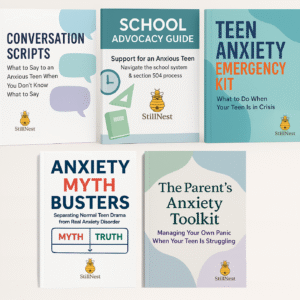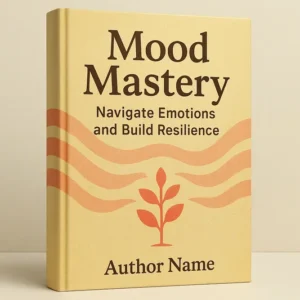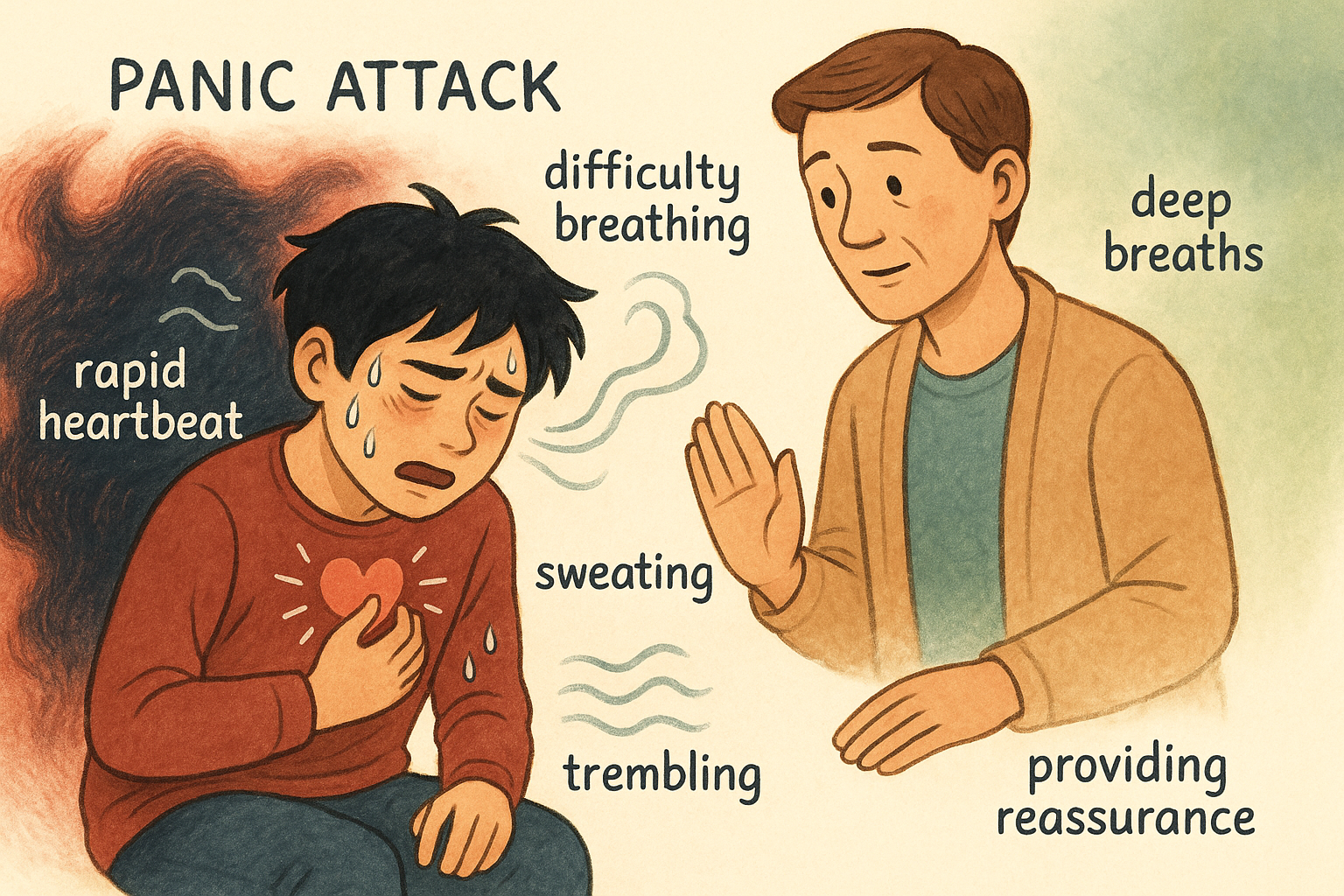Resilience – the ability to bounce back from challenges, adapt to adversity, and thrive despite difficulties – is a crucial skill for anxious teenagers. While some teens seem naturally resilient, these skills can be developed and strengthened over time. Building resilience doesn’t eliminate anxiety, but it provides teens with the tools to navigate life’s challenges more effectively.
Understanding Resilience in Anxious Teens
Resilience isn’t about avoiding anxiety or pretending problems don’t exist. Instead, it’s about developing the emotional, mental, and social skills needed to cope with stress, recover from setbacks, and continue growing despite challenges. For anxious teens, resilience training can be particularly valuable as it provides them with confidence in their ability to handle difficult situations.
Key Components of Resilience:
- Emotional regulation and stress management
- Problem-solving and decision-making skills
- Social connection and support-seeking abilities
- Optimistic but realistic thinking patterns
- Sense of purpose and meaning
- Self-efficacy and confidence in one’s abilities
The Science Behind Resilience
Research shows that resilience can be built through specific practices and experiences. The adolescent brain is particularly adaptable, making the teenage years an ideal time to develop resilience skills. These skills create new neural pathways that support emotional regulation and stress response throughout life.
Neuroplasticity and Resilience: The brain’s ability to reorganize and form new connections means that teens can literally rewire their brains for greater resilience through practice and repetition of resilience-building activities.
Building Emotional Regulation Skills
Mindfulness and Self-Awareness: Teaching teens to notice their emotions without being overwhelmed by them is fundamental to resilience. This includes recognizing early warning signs of anxiety and stress.
Emotion Naming: Help teens develop a rich vocabulary for emotions. Being able to accurately identify and name feelings helps with processing and managing them.
Distress Tolerance: Teach teens that uncomfortable emotions are temporary and manageable. Practice sitting with difficult feelings without immediately trying to escape or fix them.
Healthy Expression: Encourage safe, healthy ways to express emotions such as journaling, art, music, or physical activity.
Developing Problem-Solving Skills
Break Down Problems: Teach teens to break large, overwhelming problems into smaller, manageable pieces. This makes problems feel less intimidating and more solvable.
Brainstorm Solutions: Encourage creative thinking about potential solutions without immediately judging them. Quantity before quality in the brainstorming phase.
Evaluate Options: Help teens weigh pros and cons of different solutions and consider potential consequences.
Take Action: Encourage teens to try solutions, even if they’re not perfect. Taking action builds confidence and provides learning opportunities.
Learn from Outcomes: Whether solutions work or not, help teens reflect on what they learned and how they might approach similar problems in the future.
Strengthening Social Connections
Quality Over Quantity: Help teens focus on building a few strong, supportive relationships rather than trying to be popular with everyone.
Communication Skills: Teach teens how to express their needs, set boundaries, and seek help when needed.
Empathy Development: Encourage teens to consider others’ perspectives and feelings, which strengthens relationships and builds social support.
Community Involvement: Participation in clubs, sports, volunteer work, or other group activities helps teens feel connected to something larger than themselves.
Fostering Optimistic Thinking
Realistic Optimism: Teach teens to maintain hope while acknowledging real challenges. This isn’t about positive thinking but about balanced, realistic assessment of situations.
Growth Mindset: Help teens understand that abilities and intelligence can be developed through effort and learning. Mistakes become opportunities for growth rather than evidence of failure.
Future Orientation: Encourage teens to think about their future goals and dreams, providing motivation during difficult times.
Gratitude Practice: Regular gratitude exercises help shift focus from what’s wrong to what’s going well, building a more balanced perspective.
Building Self-Efficacy
Mastery Experiences: Encourage teens to pursue activities where they can experience success and build confidence in their abilities.
Skill Building: Help teens develop specific skills that increase their confidence, whether academic, social, creative, or practical life skills.
Challenge Progression: Gradually increase the difficulty of challenges teens take on, building confidence through incremental successes.
Recognize Strengths: Help teens identify and acknowledge their personal strengths and past successes, especially during difficult times.
Practical Resilience-Building Activities
Resilience Journaling:
- Daily reflection on challenges faced and how they were handled
- Recording things they’re grateful for
- Writing about future goals and dreams
- Documenting personal strengths and growth
Challenge Yourself Projects:
- Setting and working toward meaningful goals
- Trying new activities outside their comfort zone
- Taking on leadership roles in school or community
- Learning new skills or hobbies
Service and Giving:
- Volunteering for causes they care about
- Helping younger students or siblings
- Participating in community service projects
- Random acts of kindness
Creating a Resilient Family Environment
Model Resilience: Parents should demonstrate how they handle their own challenges and setbacks, showing that resilience is a lifelong practice.
Encourage Struggle: Rather than removing all obstacles, allow teens to face age-appropriate challenges while providing support and guidance.
Celebrate Effort: Recognize and praise the effort and process rather than just outcomes or achievements.
Share Family Stories: Tell stories of family members who overcame challenges, showing teens that resilience runs in their family.
School-Based Resilience Building
Academic Resilience: Help teens learn from academic setbacks and view challenges as opportunities to grow and learn.
Peer Support: Encourage participation in peer support groups or mentoring programs.
Extracurricular Activities: Sports, clubs, and other activities provide opportunities to build resilience through team work and challenge.
Teacher Relationships: Encourage teens to build positive relationships with teachers who can provide support and guidance.
Resilience During Crisis
When teens face significant challenges or trauma, special attention to resilience building is crucial:
Professional Support: Work with mental health professionals who can provide specialized resilience training and trauma-informed care.
Maintain Routines: Keeping some aspects of normal life stable helps teens feel grounded during chaotic times.
Focus on What Can Be Controlled: Help teens identify aspects of their situation they can influence while accepting what they cannot change.
Meaning-Making: Help teens find meaning or purpose in their struggles, which can transform suffering into growth.
Long-Term Resilience Development
Building resilience is a long-term process that requires patience and consistent effort:
Progress Not Perfection: Expect setbacks and view them as part of the learning process rather than failures.
Individual Differences: Recognize that each teen will develop resilience in their own way and at their own pace.
Ongoing Practice: Resilience skills need regular practice and reinforcement to become automatic responses to stress.
Life-Long Learning: View resilience as a skill that continues to develop throughout life, with each challenge providing new opportunities for growth.
Professional Support for Resilience Building
While families and schools can do much to build resilience, professional mental health support can provide specialized training and intervention when needed.
For comprehensive resilience training and teen anxiety support, visit StillNest Health. Our Parent & Teen Anxiety Guides specialize in building resilience skills that help teens thrive despite anxiety and life challenges.
Remember, building resilience is an investment in your teen’s future. The skills they develop now will serve them throughout their lives, helping them navigate challenges with confidence and strength.
Discover more resources for building teen resilience and managing anxiety at StillNest Health.
Related Help Guide Downloads
-
Parent & Teen Anxiety Relief Guides – Complete 5 Guide Bundle
Original price was: $85.00.$47.00Current price is: $47.00. -
Mood Mastery – Your Complete Guide to Understanding and Managing Your Emotions Digital Download
Original price was: $37.00.$17.00Current price is: $17.00.




